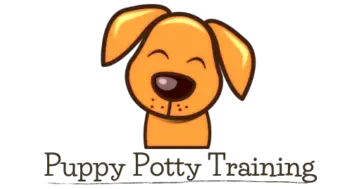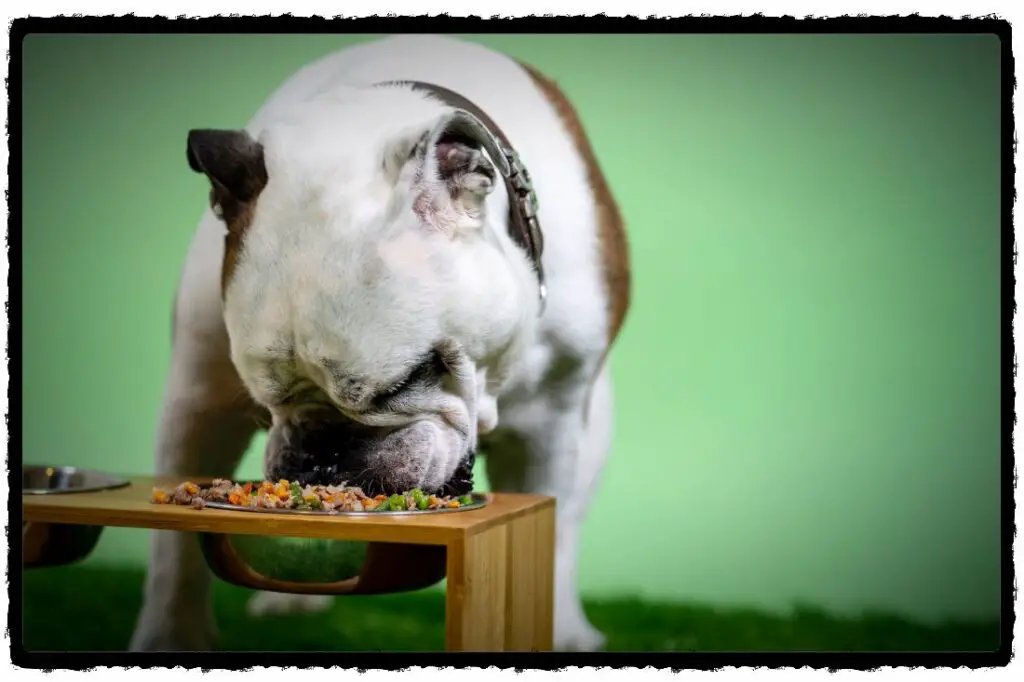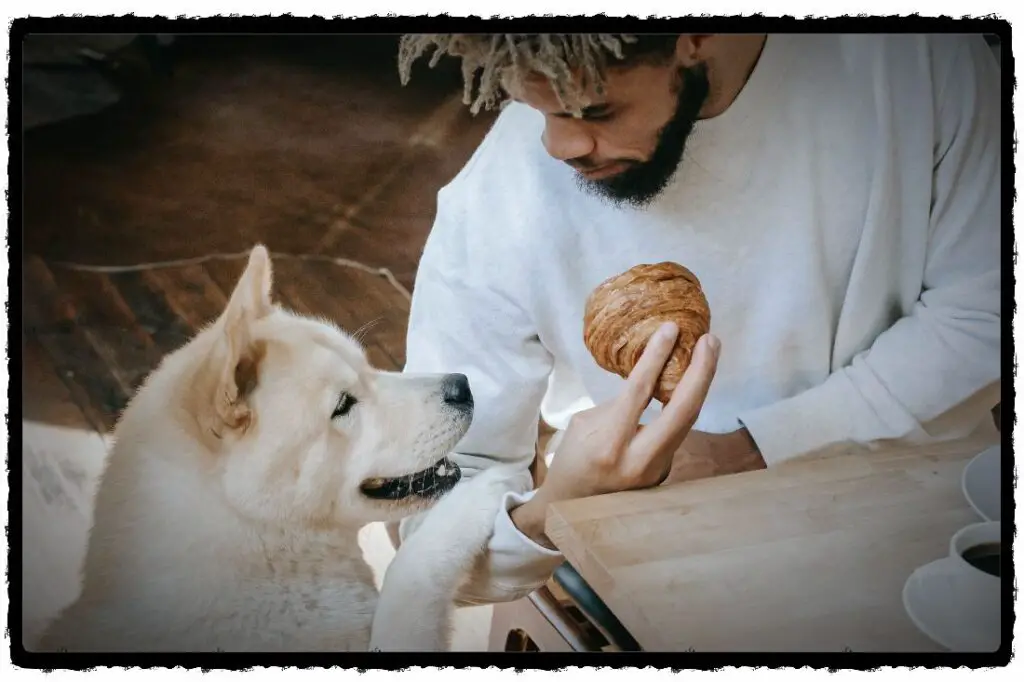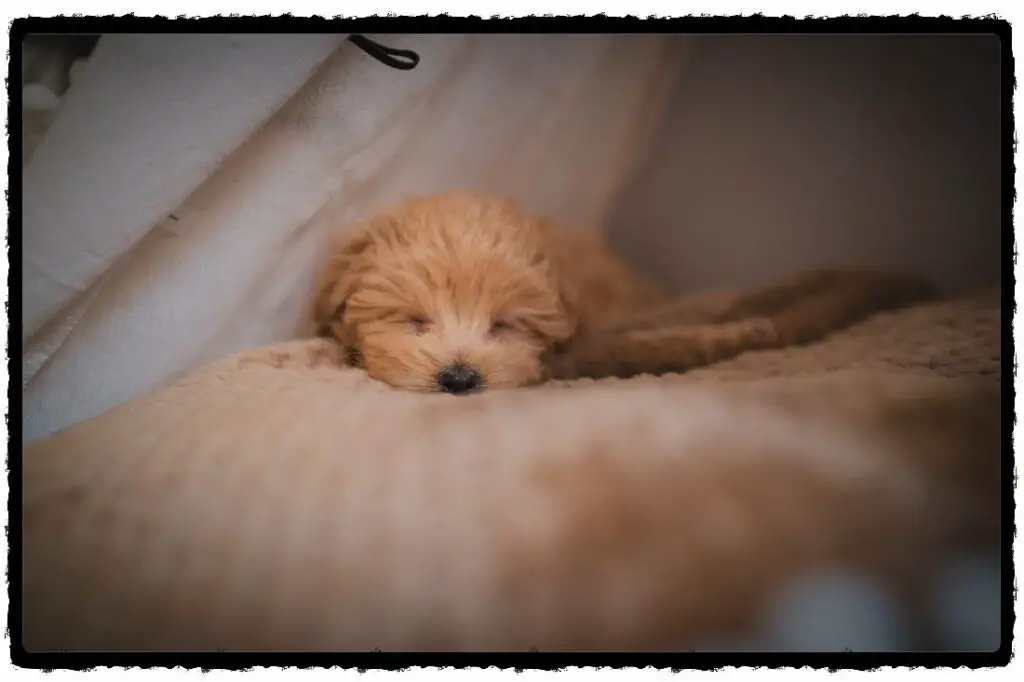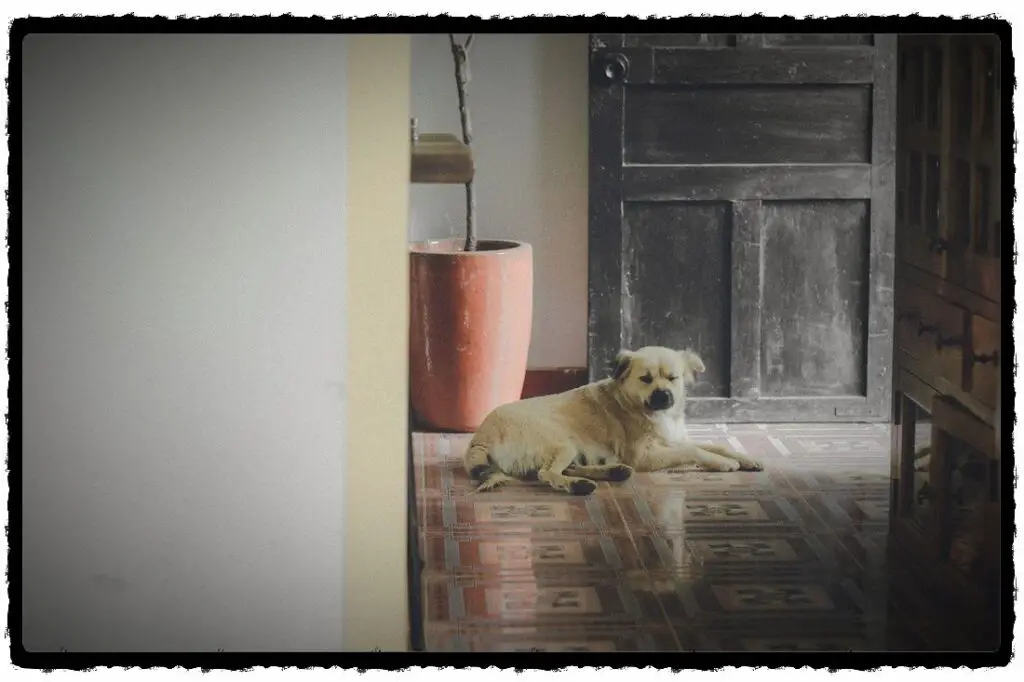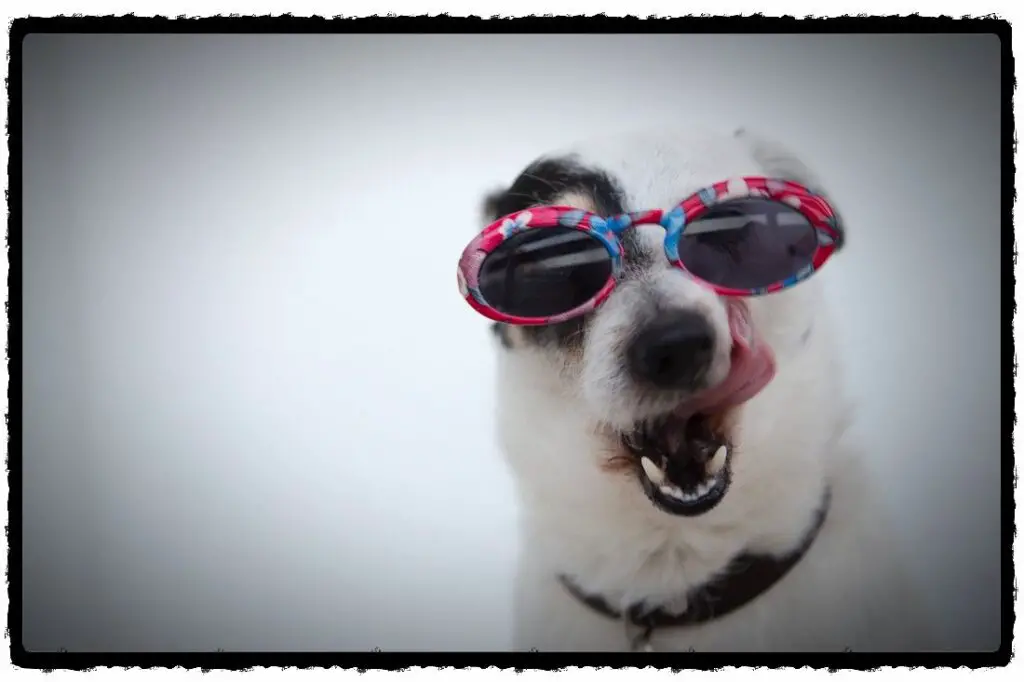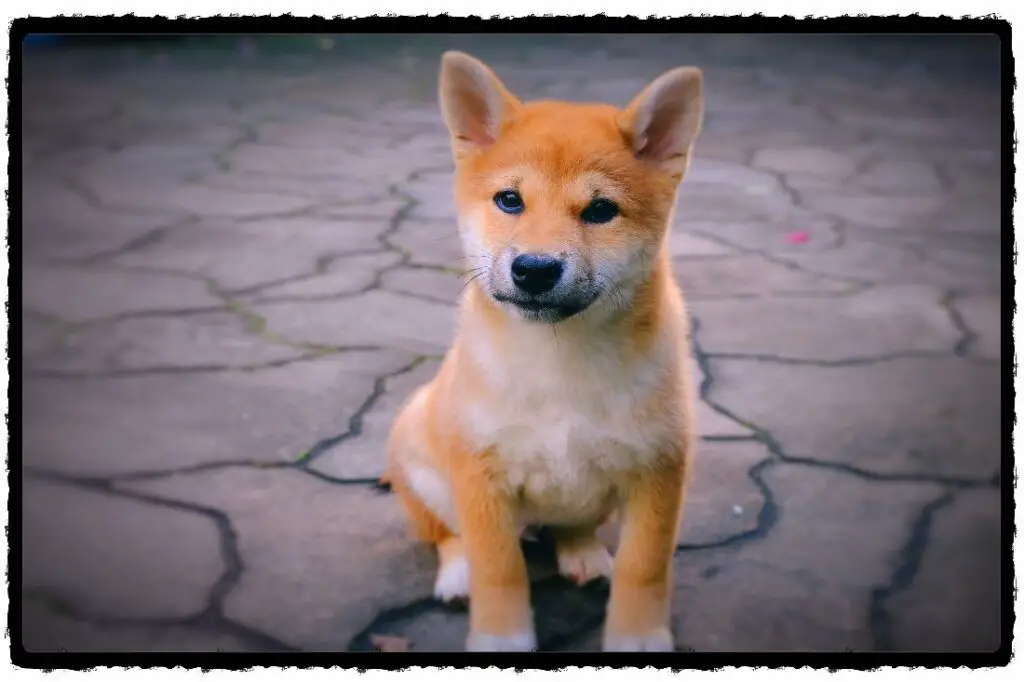You’ve got a new puppy, and you’re trying your best to potty train him so he can cuddle you on your couch without fear of having a potty accident. When do puppies stop having accidents? When can you let him into the house without fear?
| Want To Own A Introducing Hands-off Dog Training Secrets and Information With Fast, Effective Results That Save Hours Of Your Time Every Week!! |
When do puppies stop having accidents?
Puppies will stop having potty accidents when they are more than 9 months old; that’s when they develop enough bladder strength and are potty trained using the correct method.
A puppy will keep peeing and pooping here and there if no one teaches him how to behave.
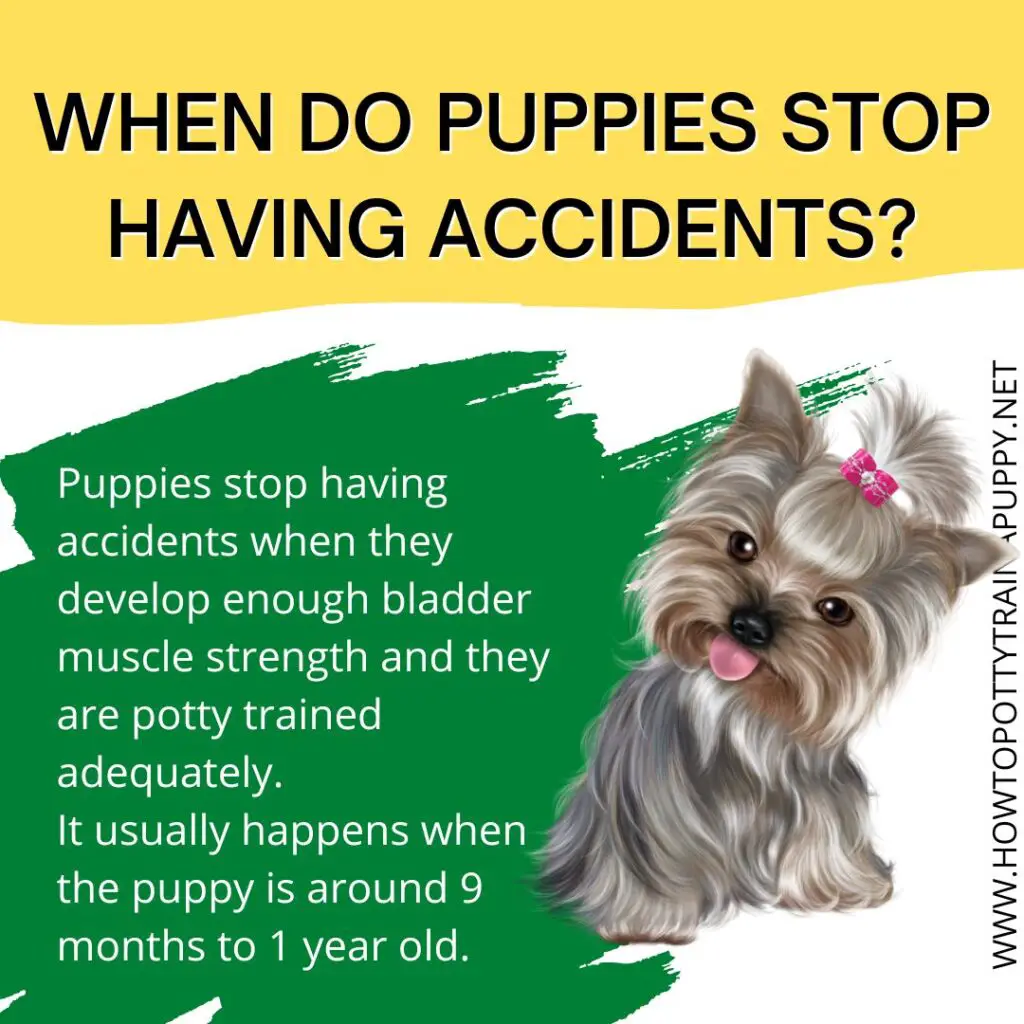
How to stop your puppy from having accidents:
The key to stopping your puppy from having accidents is “take your puppy to the potty spot on a leash when it’s time.” But how? Follow these tips to stop your puppy from having accidents and know when to take him out before he goes inside.
1- Create a schedule and stick to it:
You might have read this tip over and over again. That is for a reason! A puppy’s potty training has many vital steps, and a fixed schedule is on top.
Your puppy MUST have a fixed routine for all activities. Create a schedule that fits your routine and write it down. You don’t need to follow a specific schedule made by someone else; make your own according to your circumstances and your puppy’s needs.
Write down the schedule and stick to it. For example, here’s how I wrote my max’s schedule when he was about 4 months old:
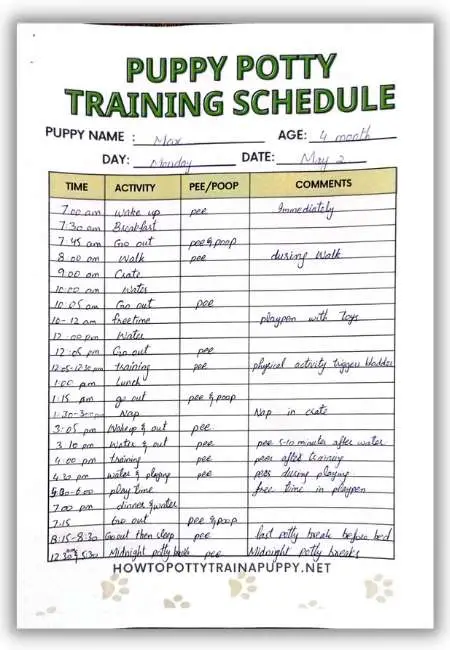
You can download and print your own schedule and accident tracker by filling out the form below. It’s Free.
Why do you need to create and stick to a schedule:
For a puppy’s potty training, you need to take him outside to potty before he does the deed in the wrong place. But how do you know that he is about to do the act? Again, only by fixing a schedule.
Dogs tend to have a specific pattern. They will pee or poop after a particular time of a specific activity—for example, 10 minutes after eating or immediately during a play session.
Every dog has a unique pattern. You will notice that pattern by putting your dog on a fixed schedule. And writing down everything will help you stay more organized and focused.
2- Watch out for the cues:
Notice the cues your puppy or dog shows before he pees or poops. Commonly, puppies show any of these signs:
- Staring at something
- Barking
- Scratching
- Squatting
- Restlessness
- Suddenly changing position
- Sniffing.
Every dog has a unique pattern. So keep an eye on your puppy and notice his way.
Then whenever your puppy shows the sign, take him outside to pee.
3- Know your puppy’s breed traits:
Learn your puppy’s breed. Small dogs need more frequent potty breaks. Some breeds are hard to potty train. So, learning about your dog breed’s traits will be helpful.
4- Keep him on a leash:
Always keep your puppy on a leash during potty training. By doing this, you won’t need to run for a leash when it’s time for your puppy’s toilet trip.
This post may contain affiliate links. Please read our full disclosure here.
5- Check your house daily with a UV flashlight:
When you have a pet in the house, you should check your home with a UV flashlight. Any old urine stain or smell will invite your puppy to pee there again, and I said many times every accident in the house is one step back in potty training.
Especially when you are allowing your newly trained puppy into the house, you must keep checking the house with a UV flashlight.
If you don’t have a UV flashlight, get it now on Amazon.
6- Clean all the urine stains with enzyme cleaner:
ALWAYS USE AN ENZYME CLEANER TO CLEAN UP AFTER YOUR DOGS. Simple household cleaners do not kill the dog’s urine smell. They are usually based on ammonia that can act as a dog urine attractant.
Read more about what attracts dogs to pee.
Enzyme cleaners kill the roots of urine smell, so you must use them to clean up after your dog.
I use and recommend simple solution Enzyme cleaners, they work great. Get it from Amazon NOW.
7- Bond with the puppy:
Dogs are the most loyal pets. They would do anything for their human friend. Focus on having a good time and bonding with your puppy to perform better in their training.
8- Prevention is the key to success:
While potty training your puppy, all you need to do is “prevent the potty accidents” in the wrong place.
Once again, You should write down the schedule and stick to it. Keep track of every accident. This way, you will be able to prevent the mess.
When do puppies develop enough bladder control?
Large breed puppies develop strong bladder muscles when they are around 7-9 months old. However, small breed puppies may need more time.
Once your puppy develops enough bladder strength, he is more likely to stop having accidents in the house if potty trained adequately.
when do puppies stop having accidents at night?
You can expect your puppy to stop having accidents at night by the time he is around 6 to 7 months old. You must remove your puppy’s water bowl at least 2 hours before bed and give him a toilet break right before bedtime. It’s a bed to put a waterproof protector in your puppy’s crate to be on the safe side.
Read more: When can puppies sleep through the night without peeing?
How to potty train a puppy? – The right way.
If you want to read the step-by-step potty training process, click here. Spend some time on learning; you will save time while training.
Conclusion – When do puppies stop having potty accidents in the house:
Puppies tend to stop having potty accidents when they have enough bladder strength and are appropriately potty trained. Usually, it happens when they are nine months to 1 year old.
You can stop your puppy from peeing in the house by following the above tips.
